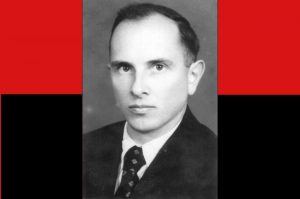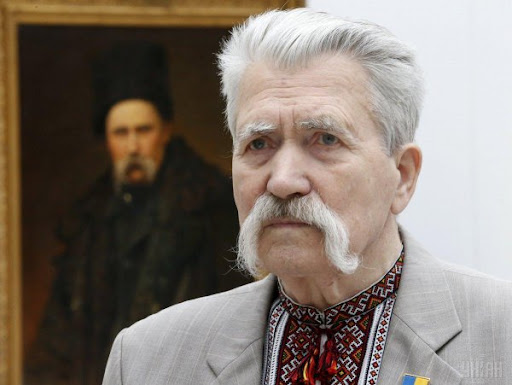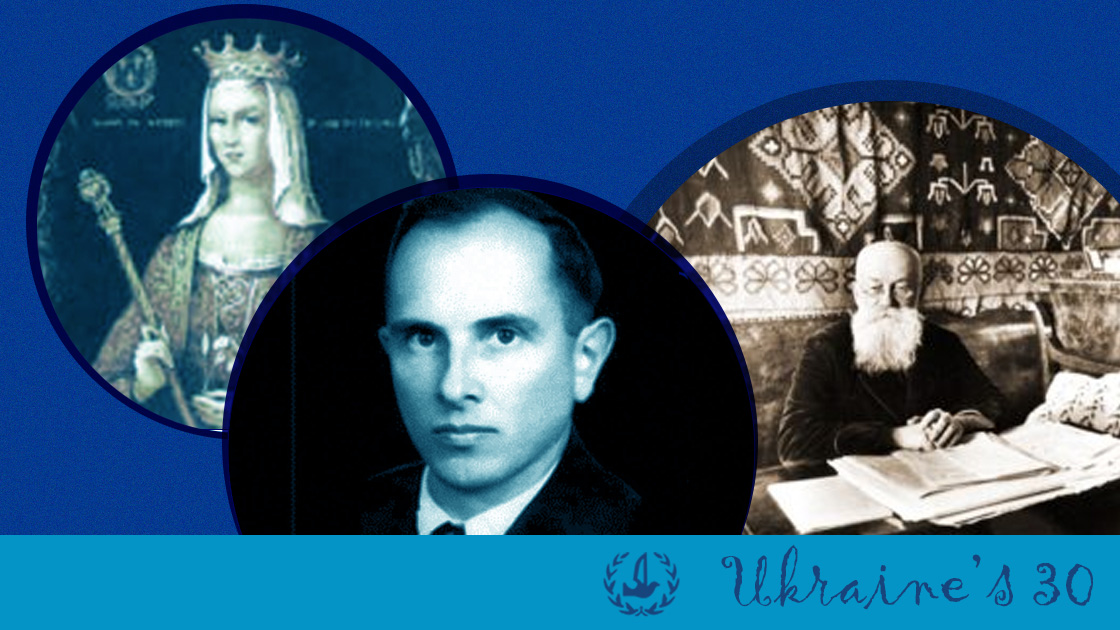On August 24, 2021, Ukrainians celebrate the 30th anniversary of the Independence of Ukraine, a landmark date in Ukraine’s nation-building journey.
On July 16, 1990, the new Ukrainian parliament adopted the Declaration of State Sovereignty of Ukraine, which established the principles of self-determination, democracy, independence, and the priority of Ukrainian law over Soviet law.
On December 1, 1991, Kyiv held a nation-wide referendum whereby over 90% of the population expressed support for the Act of Independence… and August 24 was officially adopted as Independence Day.
But, what is required for a country to become an independent state? One might argue the following points, but four main factors contribute to state-building: a people, a territory, a government, and the ability to conduct relations with other states on a sovereign basis. Ukraine has all of these, although some territories – Crimea and parts of Donetsk and Luhansk Oblasts – are currently occupied by Russia.
People are one of Ukraine’s most valuable assets, and today we focus on 30 prominent Ukrainians who, in one way or another, contributed to the transformation and development of Ukraine and the world in their relevant fields. You may argue that some were citizens of the Soviet Union, others left Ukraine and gained fame and fortune in another country. However, they have one thing in common – all were born, raised and educated in Ukraine and contributed at some point to changing the course of human history.
The list is not exhaustive, of course, and you may want to argue with our choices…
Today, we look at eight leaders of Ukraine’s political community.
Grand Prince Volodymyr the Great, ruler and Christianizer of Kyivan Rus

Volodymyr the Great (960/963-1015) was a member of the Riurik lineage, Grand Prince of Kyiv, ruler and Christianizer of Kyivan Rus
Volodymyr expanded the borders of Kyivan Rus and turned it into one of the most powerful states in Eastern Europe. He solidified the frontiers against Bulgarian, Baltic and Eastern nomads, united remaining East Slavic tribes, carried out administrative reforms, divided his realm into lands, and installed his sons or viceroys to govern them and collect tribute.
Later in his reign, Volodymyr became convinced that a monotheistic religion would consolidate his power. After investigating other religions, he chose Byzantine Emperor Basil II who had turned to Volodymyr for help in defeating one of his rivals. Volodymyr offered military aid only if he was allowed to marry Basil’s sister, Anna, and Basil agreed to the marriage only after Volodymyr promised to convert to Christianity. Volodymyr, his family, and his closest associates were baptized in December 987. The mass baptism of the citizens of Kyiv took place in August 988.
After his conversion, Volodymyr destroyed pagan temples, statues and holy sites and sent all his wives and mistresses away. He built churches and monasteries and brought in Greek Orthodox missionaries to educate his subjects. He also expanded education, judicial institutions and gave generously to the poor and various charitable works.
Grand Prince Volodymyr Sviatoslavych was the first of the Kyivan princes to start minting his own money, and the Tryzub (Trident) depicted on the coins became the emblem of Ukraine in the 20th century.
Volodymyr’s death marked the end of the Varangian period in Eastern Slavic history and the beginning of the Christian period.
Anna Yaroslavna (Anne of Kyiv), a Ukrainian princess who married King Henri I and became Queen of France

Anna Yaroslavna (1024/25 or 1032 - after 1075) was the daughter of the Grand Prince of Kyiv Yaroslav the Wise, and one of the most prominent women of the Middle Ages, who promoted Ukraine throughout Europe. Well-educated, well-versed in court etiquette, fluent in five languages, Anna became the wife of King Henri I of France, the mother of future King Philippe I, and a prominent political figure of her time.
The royal wedding took place at Reims Cathedral on May 19, 1051, and the first of their three sons, later King Philippe I, was born in 1052. The name “Philippe” was very rare in France prior to that time, and was likely inspired by Saint Philip who is said to have converted Scythia, an area identified with Kyivan Rus in the Middle Ages. After Henri’s death in 1060, Anna ruled France as co-regent while Philippe was a child.
Queen Anna influenced the foreign and domestic policy of France, was a member of the royal council, founded the Abbey of St. Vincent in Senlis, cared for churches and monasteries, and corresponded with Pope Nicholas II.
In 2013, thanks to the support of Ukrainian entrepreneurs, the Ukrainian community in France purchased a historic building in Senlis, which began functioning as the Centre Culturel Anne de Kyiv and is dedicated to creating a dialogue between Ukraine and Western Europe and implementing cultural, art, scientific and educational projects. Every year, hundreds of visitors from different countries gather to celebrate Les Journées Anne de Kyiv.
Bohdan Khmelnytsky, skilled military leader, outstanding reformer and founder of Ukrainian statehood (Hetmanate)

Bohdan Khmelnytsky (1595-1657) was Hetman of the Zaporozhian Host, a tireless fighter for independence, and the founder of the first Ukrainian state - the Hetmanate (1648–1782).
Bohdan Khmelnytsky was a well-educated man, had a broad knowledge of world history and fluency in Polish and Latin, and later acquired knowledge of Turkish, Tatar and French.
In 1648–57, Khmelnytsky led a national uprising against the Polish-Lithuanian Commonwealth. Allying his army with Turkish and Crimean Tatar forces, he liberated a large part of Ukrainian territory from Poland and established a Kozak Hetmanate state. He entered Kyiv in triumph in 1648, loudly hailed as “the Moses, saviour, redeemer, and liberator of the Rus people from Polish captivity ... the illustrious ruler of Rus”.
In 1651, Khmelnytsky went to war again, but was defeated at the Battle of Berestechko. He then sought aid from Moscow against Poland and in 1654 signed the Pereyaslav Treaty with Tsar Alexis of Russia, an agreement that forever changed the geopolitical situation in Eastern Europe and the balance of power in Europe, bringing Russia and autocracy onto the European scene. The Kozaks were gradually subjugated by Moscow, which gained control of Ukraine’e eastern territories and curtailed the Kozak’s liberties.
Although his alliance with Moscow is severely criticized by many historians, Bohdan Khmelnytsky is regarded as a national hero in Ukraine, a skilled military leader, an outstanding reformer and the founder of Ukrainian statehood. His reign established Ukraine as an independent state that was widely recognized in the international arena.
Mykhailo Hrushevsky, historian and first president of a modern Ukrainian state (UNR)

Mykhailo Hrushevsky (1866-1934) was a distinguished historian, the first president of a modern Ukrainian state (Ukrainian National Republic (UNR) in 1917–18, and an important cultural and political figure in the early days of the Ukrainian SSR.
Appointed professor of Ukrainian history at Lviv University, Hrushevsky became active in the Shevchenko Scientific Society (NTSh), gathered together scholars and scientists and established a school of notable Ukrainian historians. In 1898, the first volume of his monumental Istoriya Ukrayiny-Rusy (History of Ukraine-Rus) was published in Lviv and another nine volumes appeared in Lviv and Kyiv in 1937.
Hrushevsky's political activity began only after the 1905 Revolution in Russia, when restrictions were lifted and more Ukrainian organizations and political parties were allowed to function. During World War I, the Russian government again restricted Ukrainian activities. Hrushevsky was arrested in the fall of 1914 and exiled to Siberia.
Released after the 1917 February Revolution, Hrushevsky quickly became the leader of the Ukrainian national revolution. On March 17, 1917, he was elected chairman of the Central Rada, the young revolutionary parliament of Ukraine. On April 29, 1918, he was elected president of the Ukrainian National Republic (UNR).
Hrushevsky’s achievements as a scholar and historian, as a civic and political activist, and one of the most prominent figures of Ukraine’s fight for independence in 1917-20 angered the Bolsheviks. The 1946 resolution of the Communist Party of Ukraine and later Soviet publications characterize him as a “nationalist historian”, “the ideologist of Ukrainian counter-revolutionary bourgeoisie”, and “the untamed enemy of Soviet rule”.
The Soviet regime continued to combat Hrushevsky’s ideas and its followers in history, literature, linguistics, and other disciplines until the late 1980s.
Yevhen Konovalets, founder and leader of the Organization of Ukrainian Nationalists (OUN)

Yevhen Konovalets (1891-1938) was a colonel in the UNR Army, veteran of the Ukraine-Soviet War (1917-1921), founder and leader of the Organization of Ukrainian Nationalists (OUN).
After WWI, Konovalets remained committed to the idea of an independent and unified Ukraine and continued his work in the fight for independence. In 1921, he took charge of the Ukrainian Military Organization (UVO), which was aimed at armed resistance against the Polish and Russian occupation forces. In 1929, he reorganized and unified various patriotic groups in the Organization of Ukrainian Nationalists.
“It is through fire that iron melts into steel. It is through combat that a people becomes a nation!” said Konovalets
In December 1922, Konovalets and his family fled Ukraine, living in Berlin, Geneva and Rome. He continued working within OUN, establishing political and military contacts in Germany, Austria, Italy, Great Britain, and even Canada and the United States.
In the ten years that he led OUN, Konovalets used his organizational talents to consolidate the position of OUN and develop Ukrainian organizations in the diaspora. He also worked tirelessly in bringing the Ukrainian national question to the attention of the League of Nations.
However, Konovalets and the OUN were seen as a dangerous threat by Soviet authorities. On May 23, 1938, he was assassinated in Rotterdam by a bomb hidden inside a box of chocolates gifted by a so-called friend, Pavel Sudoplatov, an NKVD agent who had infiltrated OUN and carried out Joseph Stalin’s personal order.
Konovalets was one of the most prominent figures in 20th
century Ukrainian history. As a military officer he was noted for his organizational abilities and loyalty. As a political leader he combined high principles with flexibility and effective action. He enjoyed enormous personal authority among OUN cadres and soldiers, and the respect of his political adversaries.
Stepan Bandera, revolutionary leader, founder of the Ukrainian Insurgent Army and lasting symbol of national resistance

Stepan Bandera (1909 -1959) was a politician, a revolutionary, and the ideologue of the Ukrainian nationalist movement.
During his student years in Lviv, Bandera joined the Ukrainian Military Organization and OUN. In June 1933, he began forming the military faction of OUN, which came to be known as the Ukrainian Insurgent Army (UPA). He was imprisoned twice for his political activities by Polish authorities.
In order to unify all the Ukrainian political factions, Bandera initiated the Ukrainian National Committee in Krakow just before the German-Soviet war. He built relations with German officers and politicians favouring Ukrainian independence, initiated the formation of a Ukrainian military legion, organized OUN/UPA groups.
From CIA archives: Stepan Bandera’s 1954 interview to German radio
With his proclamation of Ukrainian Statehood on June 30, 1941 in Lviv, Bandera believed that the Germans would ally themselves with the “enslaved” peoples of the USSR and allow Ukraine to develop as a nation. It is namely this proclamation that Soviet authorities used - and Putin still uses - as proof of collaboration with Nazi Germany. It was indeed a reckless action and was categorically declined by Nazi Germany. Bandera refused to revoke the decree, was arrested and spent the period from July 1941 to September 1944 in German prisons and Sachshausen concentration camp.
On October 15, 1959, Bandera was poisoned in the streets of Munich by Bohdan Stashinsky, a Soviet agent who used a special cyanide spray gun hidden in a rolled-up newspaper.
More than 60 years after his death, Bandera remains an important, but highly controversial figure in modern Ukraine. His name is linked to some tragic periods of Ukrainian history (Volyn massacre, collaboration).
Since Euromaidan in 2014, Bandera’s name has been a rallying cry for many Ukrainian patriots and nationalists, particularly after the Russian invasion of Crimea and the start of the Russian-Ukrainian war in eastern Ukraine.
“And there will come a time when one man says: “Slava Ukrayini!” (Glory to Ukraine) and millions will answer: “Heroyam Slava!” (Glory to the Heroes).” one of many Bandera quotes echoing across Ukraine since 2014.
Levko Lukianenko, political dissident, one of the founders of the Ukrainian Helsinki Group, author of the Declaration of Independence of Ukraine

Levko Lukianenko (1928-2018) was a political dissident, Deputy of Ukraine, one of the founders of the Ukrainian Helsinki Group. Lukianenko is highly regarded for his uncompromising stance in defence of Ukraine.
His passionate life is best illustrated by his quotes:
“In the genetic code of all Ukrainians, there is a strong desire for independence. And, although our ancestors of Kyivan Rus lost their state when the Tatar-Mongols captured Kyiv in 1240, we remember our roots and will always fight to restore our statehood.”
Lukianenko's first dissident group, called the Union of Ukrainian Workers and Peasants defended the right of secession from the Soviet Union. He was arrested on January 21, 1961, but his death penalty was commuted to 15 years’ imprisonment in penal labour camps. He was released in 1976 and settled in Chernihiv, where he worked as an electrician.
In September 1976, he and a group of like-minded activists founded the Ukrainian Helsinki Group, for which he was sentenced to 10 years’ imprisonment and 5 years’ exile as an “especially dangerous recidivist”.
“The Ukrainian national organism always produces people who make sacrifices. From time immemorial, there have been people of Kozak temperament and courage, who go to their death for freedom, for Ukraine. This indicates that our nation will be free. Ukraine now has such people too. There are never many of them - in any nation. But the fact that they exist, indicates that victory is ours!”
During the perestroika years, Lukianenko was pardoned and freed on November 30, 1988 (in total he had spent 27 years in prison), returning to Ukraine in early 1989 where he continued his political activities. He co-authored the Declaration of State Sovereignty of Ukraine adopted by the Supreme Soviet on July 16, 1990, and during the night of 23-24 August 1990 Lukianenko, together with other deputies, composed the Act of Declaration of Independence of Ukraine.
“Anyone who believes that independence falls from the sky does not know that each one of us spent at least 10 years in prison and exile.”
How important were the Soviet dissidents: the case of Ukraine
Vyacheslav Chornovil, political dissident, leader of the national-democratic independence movement in the 1980s and 1990s

Vyacheslav Chornovil (1937-1999) was a political dissident, Deputy of Ukraine, leader of the national-democratic independence movement in the 1980s and 1990s, one of the leaders of the Ukrainian human rights movement, long-time chairman of the People’s Movement (Rukh) of Ukraine.
As of August 1965, Chornovil began appearing with other dissidents in rallies and political events. First, the Soviet authorities issued him a severe Komsomol reprimand for “political hooliganism” and on November 15, 1967, he was sentenced to 3 years for “fabricating and distributing documents containing defamatory slander against the Soviet state and social system”.
In 1970, he issued the secret journal Ukrainian Herald. He was again arrested and in April 12, 1973, sentenced to six years in a maximum security labour colony in Yakutia.
Having spent seventeen years as a political prisoner, in May 1985 Chornovil was allowed to return to Ukraine on the eve of Gorbachev’s perestroika.
In 1990, Chornovil began his career in politics. He was elected to the Verkhovna Rada of Ukraine three times (1990, 1994, 1998). In 1988, he initiated the creation of the Ukrainian Helsinki Group, was founding member of the Grand Council of the Popular Movement, aka Rukh.
Chornovil ran for president in December 1991, but was narrowly defeated by Leonid Kravchuk. On March 25, 1999, Vyacheslav Chornovil died in a car accident on a highway near Boryspil. Many Ukrainians believe that it was a political assassination on the eve of the upcoming presidential election where he was running against Leonid Kuchma. Former Deputy Prosecutor General Mykola Holomsha maintains that Chornovil was given the death blow with brass knuckles.
Over 200,000 people attended Chornovil’s funeral in Kyiv.
“May God help us to love Ukraine above all today – when she is ours, so that we don’t need to love her later with bitterness – when we’ve lost her!”
They broke the Gulag: How Ukrainians overcame the Soviet repressive machine

